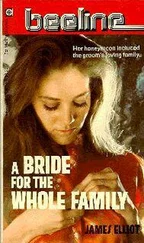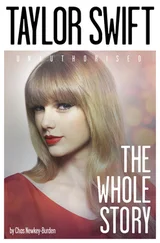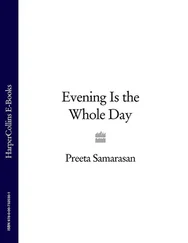It turned out the shrug was right; by creating something as innocuous as an empty box, I had once again nudged my family’s destiny in a really unpleasant direction.
***
It started about a month later, when Terry’s name first appeared in the suggestion box.
Mr. Dean should learn to control his son. Terry Dean has fallen under the influence of young men impossible to turn around. But Terry is young. It’s not too late. All he needs is some parental guidance, and if his parents can’t do it, we’ll find some that can.
Everyone in the hall applauded. The townspeople regarded the box as a sort of oracle; because the suggestion didn’t come directly out of the mouths of our neighbors but was on paper and pulled ceremoniously from the box and read in the authoritarian tone of Jim Brock, the words were taken more seriously than they deserved, and were often followed with a frightening religious obedience.
“It’s not my fault it’s a titanic waste of effort raising sons under strict moral guidelines when children are so heavily influenced by their peers,” my father said that night over dinner. “One wrong friend and your kid could be knocked off balance for good.”
We all sat listening to him with trepidation, watching his thoughts whirl around his head like dust in the wind.
The next day he turned up at the playground at lunchtime. Both Terry and I ran for cover, but he wasn’t looking for us. Notebook in his lap, he sat on the swings and watched the children play; he was making a list of young boys he thought suitable to befriend his sons. Of course the children must have thought he was insane (these were the days before they would have simply assumed him a pedophile), but watching his fervent efforts to put me and Terry on the straight-and-narrow made me pity and admire him in equal measure. Every now and then he’d call over a boy and have a chat with him, and I remember being secretly impressed by his commitment to what was a seriously weird idea.
Who knows what they talked about during these informal interviews, but after a week my father’s list contained fifteen potentials: fine, upstanding children from good families. He presented us the results of his intensive research. “These are suitable friends,” he said. “Go out and befriend them.”
I told him I couldn’t make a friend out of plasticine.
“Don’t tell me that,” my father barked. “I know what making friends is about. You just go up and talk to them.”
He wouldn’t let up. He wanted updates. He wanted results. He wanted to see lifelong friendships parade before his eyes, and that was an order! Finally Terry had his gang “persuade” a couple of unsuspecting kids from the list to come over and hang out in the backyard after school. They came, shaking all afternoon, and for a while my father was placated.
But the suggestion box wasn’t. Eyes all over the town could see Terry carrying on with Bruno and Dave as before.
The next suggestion that came was this: I suggest that while his parents are not religious, Terry could use some spiritual guidance. It isn’t too late. Terry can still be reformed.
Once again my father was furious, though strangely obedient. This was to be the pattern, and as the quantity of the suggestions about Terry’s errant behavior increased and our family became a constant object of attention and scrutiny, my father cursed both the box and the “serpent” who put it there, but still he obeyed.
After arriving home from the town hall, my father argued with my mother. She wanted a rabbi to come talk to Terry. He thought a priest would do the job better. In the end my mother won out. A rabbi came over to the house and talked to Terry about violence. Rabbis know a lot about violence because they work for a deity who is famous for his wrath. Problem is, Jews don’t believe in hell, so there isn’t the same readily accessible chamber of fear the Catholics have up their sleeve to poison the nervous system of their youth. You can’t turn to a young Jewish boy and say, “You see that pit of fire? That’s where you’re going.” You have to tell him stories of the vengeance of the Almighty and hope he gets the hint.
Terry didn’t, and there were more suggestions to come, but don’t think the box was aimed only at my brother. One Monday night in the middle of summer, my own name was mentioned.
Someone should tell young Martin Dean that it’s rude to stare, the suggestion began, inspiring the whole room to burst into applause. He’s a grumpy boy who unnerves everyone by glaring at them. And he doesn’t give Caroline Potts a moment’s peace. I tell you, I’m no stranger to humiliation, but nothing has ever surpassed that mortifying moment.
A month later another Dean family suggestion was drawn from the box, this time aimed at, of all people, my mother.
Mrs. Dean should stop wasting our time with lengthy justifications as to why her husband and children are no-hopers. Terry isn’t just “wild,” he’s a degenerate. Martin doesn’t “march to his own drum,” he’s a sociopath, and their father hasn’t got “a healthy imagination,” he’s a bald-faced liar.
There’s no doubt about it. Our family was a popular target, and the townspeople really seemed to have it in for Terry. My mother became frightened for him, and I became frightened of her fear. Her fear was terrifying. She would sit on Terry’s bed and whisper “I love you” as he slept, from midnight until dawn, as though trying to alter his behavior subconsciously, before it was altered for him. She could see that the townspeople took her son’s reformation as one of their top priorities; he had been their number-one pride and was now their number one disappointment, and when it was obvious that Terry was continuing to run around with the gang, stealing and fighting, another suggestion was offered to tackle the problem: I suggest the renegade Terry Dean be taken up to the prison on the hill to talk to one of the inmates and hear the horror of the life inside. Maybe scare tactics will work.
For safety, my father forced me along too, in case I took it into my head to follow my brother into a life of crime. We moved up the hill toward the prison, our real school, on the dirt road that came down the hill like an open wound.
It was arranged for us to meet the worst criminal in the prison. His name was Vincent White. He’d had a bad time inside: stabbed seven times with a shiv, face sliced open, blinded in one eye and left with a lip that dangled from his face like a label you just want to tug off. The three of us sat down in front of him in the visitors’ room. Terry had met Vincent once before, with Harry. “Bit surprised you want to see me,” Vincent said straightaway. “You and Harry having maritals?” Terry shook his head imperceptibly, trying to signal him, but Vincent’s one functioning eye was darting around the room, surveying my father. “Who’s this you got with you? This your old man?”
My father dragged us out of the prison as if it were on fire, and from that day on the Dean boys were forbidden to visit anyone inside. I tried to return once or twice to see Harry, but I was knocked back. It was a crushing blow. Now more than ever, I desperately needed his advice. I knew things were building to a climax that was obviously not going to go down in our favor. Maybe if I’d had the presence of mind, I’d have encouraged my brother to leave town when, soon after the prison incident, he had an opportunity to escape this awful mess I’d created.
It was a Friday afternoon, and Bruno and Dave drove up in a stolen Jeep loaded with their possessions and also other people’s possessions. They honked the horn. Terry and I went out to meet them.
“Come on, mate, we’re getting out of this shitty town,” Dave called out to Terry.
Читать дальше












